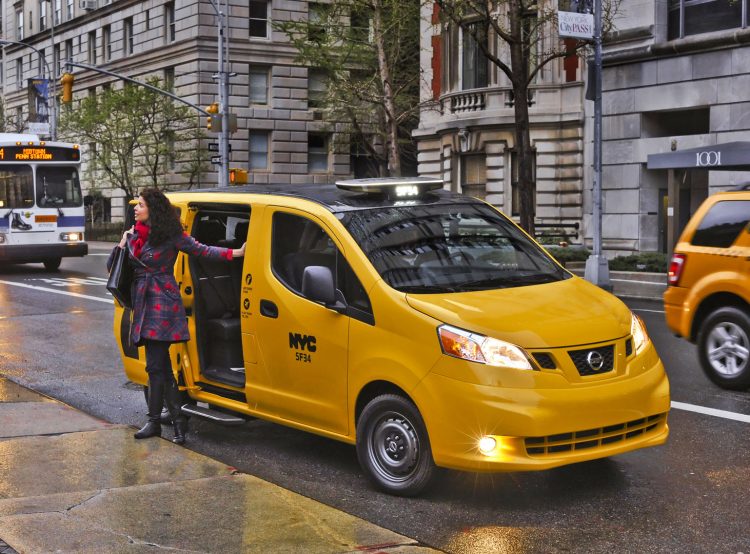New York’s yellow-cab drivers are no longer required to pass an English test. Backers of a new law says it will make it easier for immigrants – who make up 96% of city’s taxi drivers – to get jobs: ‘We should be removing barriers to entry’. But will the passengers understand – the driver? And vice-versa?
A new law that streamlines licensing requirements for different kinds of drivers has done away with the longstanding English proficiency test for taxi drivers. Supporters say this will eliminate a barrier to the profession for immigrants, who make up 96% of the 144,000 cabbies in the city. Drivers must still pass tests on such details as driving rules and where they can pick up passengers.
The reasoning is a bit strange, however: the end of the English test is apparently a recognition of how technology has transformed the business. Many drivers now rely on computer navigation programs rather than verbal directions to reach a destination. For-hire drivers for app-based services such as Uber have never had to take an English test. But surely, necessary conversation in the cab is about more than just directions.
That’s why critics of the change, including some drivers, say a good command of English is a basic requirement for a job that involves communicating with passengers and reading street signs.
“If you’re going to work in this country serving the population which is majority made up of American citizens that speak English, you probably should learn how to speak English,” Tanya Crespo, a tourist visiting Manhattan from Newport, North Carolina, told The Guardian.
Kathy Amato, a tourist from Baltimore, said she wouldn’t ride in a taxi with a driver who couldn’t speak her language. “They should speak English because we’re in New York City,” she said.
New York City’s taxi and for-hire drivers come from 167 countries, according to the Taxi and Limousine Commission, which currently offers licensing tests in English, Spanish, Bengali and Urdu.
Drivers formerly went through one of two licensing processes, depending on what class of car they drove. One was for the yellow cabs that passengers can hail on the street. Drivers of those vehicles, which mostly operate in Manhattan and at the city’s airports, had to take an education course and an English proficiency test.
The other licensing process covered drivers of for-hire cars, the dominant form of taxi in the “outer boroughs” of Brooklyn, the Bronx, Queens and Staten Island. Those rides are dispatched by telephone or mobile phone app. For those drivers, an English test wasn’t required.
Drivers for the different types of cars also tended to come from different countries. Among yellow cab drivers, 24% were born in Bangladesh, 10% in Pakistan and 8% in India, according to city statistics. English is widely spoken as a second language in all three places. Among the traditional for-hire livery car drivers, 50% were born in the Dominican Republic.
Some foreign-born taxi drivers said taking and passing the English test was once a successful rite of passage. “You had to really learn to get it,” said Michael Osei-Antwi, a driver from Ghana who took the English exam 17 years ago. “If somebody tells you they are going to Gansevoort Hotel and you don’t know English, how are you going to be able to get there?”
There is now an education course that both yellow cab and livery drivers will take. Taxi regulators said they were working with other city departments to create an English-language component for that course.
New York City council member Ydanis Rodriguez, who sponsored the legislation, said the driving jobs were “a step into the middle class for many, and we should be removing barriers to entry, rather than keeping them in place”. In certain neighbourhoods in New York City, he said, not speaking English isn’t a problem since the drivers and those using their services all speak the same language.
Melquisedc Abreu, a 45-year-old livery car and Uber driver born in the Dominican Republic, agreed, saying it wouldn’t matter to most of his passengers if he didn’t speak English.
“They never talk to me,” he said. “They just get in the car, I got the destination, drop them off, thank you, have a good day, and that’s it.”








